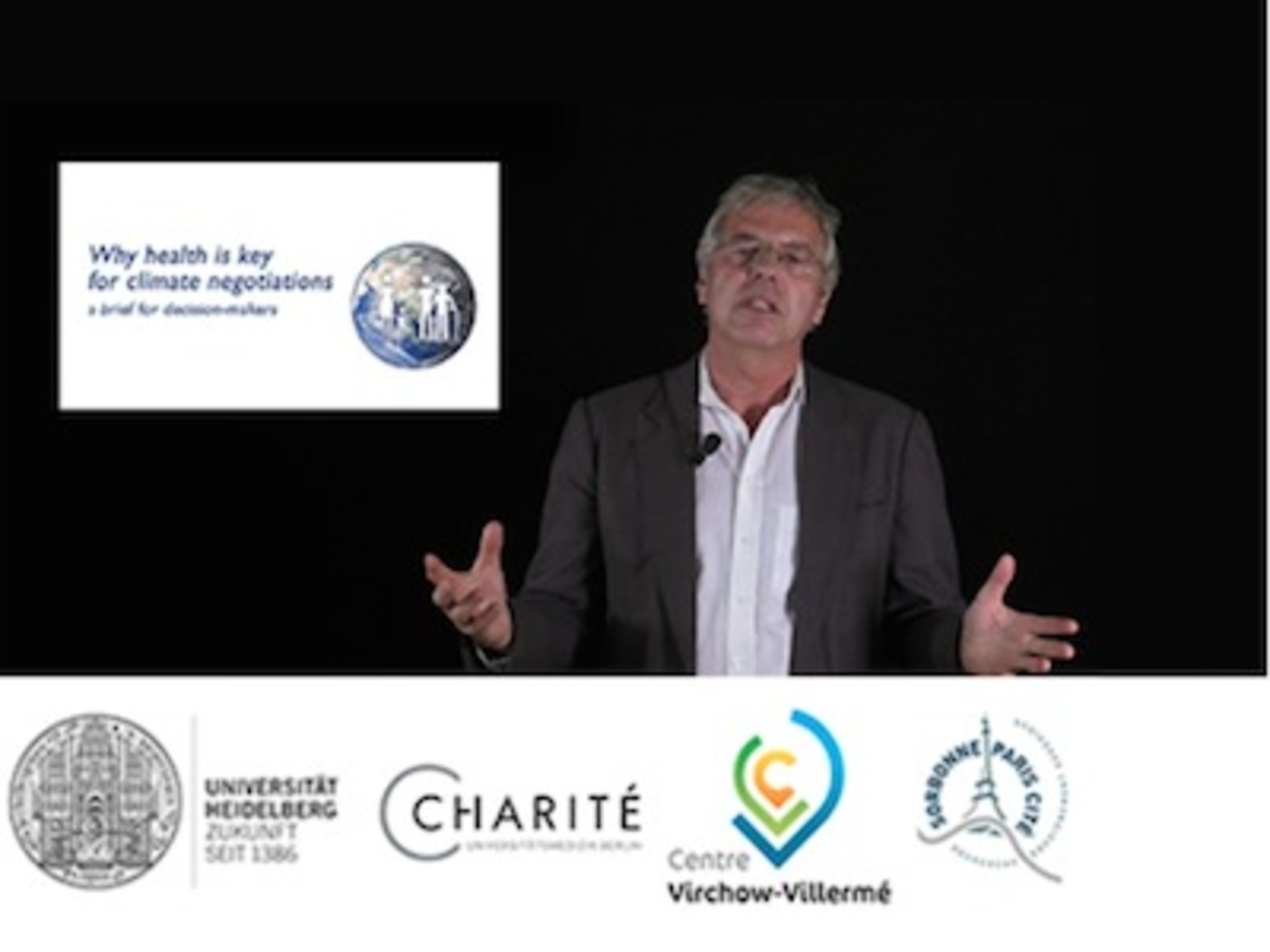
|
This MOOC was developed by four eminent scientists who together authored the health chapter in the recent 5th Assessment report of the IPCC. They offer you a short crash-course into the topic of climate change, tailored to senior policy-makers and negotiators of climate agreements, particularly as an input into the climate conference COP21 in Paris in December this year. This 1 week MOOC requires 3 hours of investment time and provides hard evidence for four key arguments as to why health is and should be central in climate policy. Who should take this MOOC?Senior, experienced members of climate negotiation teams from all 195 member states of the UNFCC. The course is launched to allow policy-makers involved in the Climate Conference COP21 in Paris 2015 to take it as part of their brief. What do I need to know?Participants should be familiar with the essentials of the climate systems and the current debate on mitigation and adaptation policies, as well as proposals for fair financing of the shared but differentiated responsibilities of rich and poor countries, which are the agenda of the COP21 conference. What will I learn?(i) The participant will understand why health is not another sector but a key argument in developing climate policy and fair share of the burden and benefits of climate policies. Course StructureThe course is organised in 4 lectures, each developing the evidence for the 4 health arguments, which we propose are inherent in all negotiations on climate policy: The four short lectures (8 minutes) are complementary and follow a common storyline. So it is desirable that the participants watch all of them. This would be an essential useful minimum of investment. We offer 7 optional quiz questions for each lecture in case the participant wishes to check on his or her comprehension of the factual information provided. Our discussion forums are key to our MOOC concept. This enables participants to engage in an exchange of views and information on any topic they wish related to the course topic. The course instructor and his assistant will actively participate in the forums. Weekly YouTube feedback video: The course instructor will personally answer questions that are of great common interest or are frequently asked during a weekly youtube video, put on line each Friday at 2pm CET. Personal email feedback: The instructor and our team will be available to respond to individual questions and comments directed at us through internal mail during the 3 months of the course will be online. Categories:
Starts :
2015-10-13 |
|
AlternativesIf you know any alternatives, please let us know. PrerequisitesIf you can suggest any prerequisite, please let us know. Certification Exams-- there are no exams to get certification after this course --If your company does certification for those who completed this course then register your company as certification vendor and add your exams to the Exams Directory. | ||
Let us know when you did the course Climate Change & Health for Policy-Makers.

Add the course Climate Change & Health for Policy-Makers to My Personal Education Path.

Select what exam to connect to the course. The course will be displayed on the exam page in the list of courses supported for certification with the exam.





 0
0 0
0

